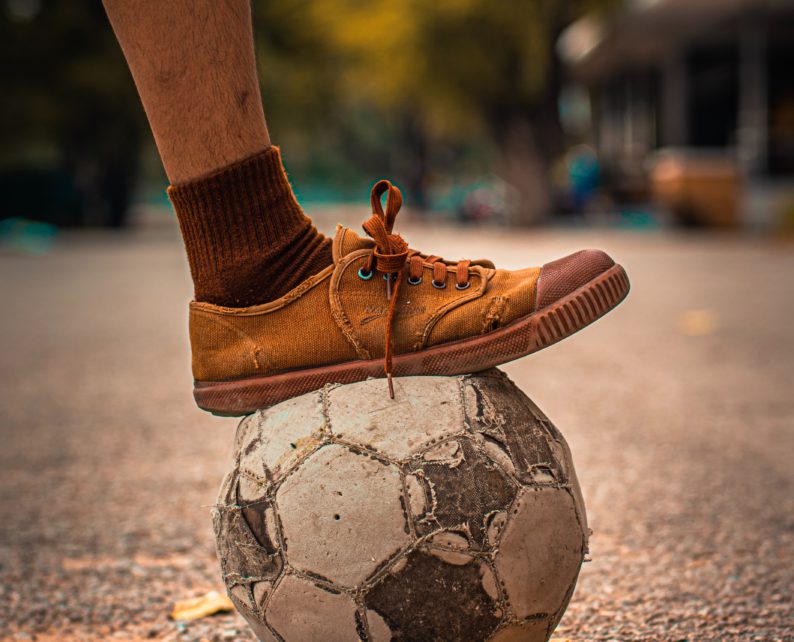By Kiera Wason-Milne, Sport and Citizenship Head of projects
It’s as if someone hit the pause button on a global scale. Our worlds, our societies, our lifestyles are at a standstill, and it is a unique experience. While we share a common longing to go back to a certain ‘normality’, that is taken for granted, we are consistently encouraged to take this suspended time as an opportunity. An opportunity to learn, to create, to reflect, to fix, to develop, or to rethink our world of tomorrow. Embarking on the voyage of introspection, be it at a personal or societal level, will inevitably bring about unease. It is perfectly normal, it’s part of the process. Let us not be afraid of this unease, it will only last as long as it takes us to adjust to the blinding lights of our reality and normalized extremes. This introspection will allow us to nourish our humanity together, to imagine our worlds of tomorrow and how to set them up as of today.
“Using sport as a vehicle for social inclusion unfortunately remains untapped”
Sport and its sector may be an integral part of your life, through regular practice, competitions, volunteering, being a fan, or through your professional line of work. But for many more, sport doesn’t embody such interest or enthusiasm. Think carefully, you’ll most likely realise sport still holds an important place among your close ones. You may have heard of this- the sport sector, and especially grassroots sport is being violently it by the sanitary crisis, at local, national and European levels.
On a human scale, the abrupt disappearance of grassroots sport appears to have left a void of social contact behind it. When used correctly, the added-value that sport brings about goes well beyond mental and physical health benefits. Thanks to its popularity, its universal language and its apolitical nature, grassroots sport is a place of sociability and of social cohesion. And it is from this perspective that grassroots sport is a fertile ground for the social inclusion of remote, marginalized or new populations. This ground, that is so precious to the well-being of our local communities, has inevitably also been put on hold. In a timely manner, let us take our united solitude to think of that of others, of groups whose isolation is not bound or sparked by the sanitary crisis, as is the case for refugee and migrants groups.
Since 2014, projects and initiatives that foster and promote the social inclusion of refugees and migrants through sport have blossomed across the continent, both at local and European levels. Despite positive results, cost effectiveness and evidence of their efficiency, using sport as a vehicle for social inclusion unfortunately remains untapped. It has to be said that sport often remains the last item on the political agenda; in addition to the fact that since 2014, political, media and public interest remain transfixed with borders and the number of newcomers. We therefore seem to be off to a bad start to implement the necessary change in perspective to face the infamous refugee and migrant ‘crisis’. One of the keys to getting out of this stalemate is to set the concept of ‘crisis’ where it belongs- not at our Member States and European Union (EU) borders, but in our local communities. We are failing to grasp that it’s in fact a ‘social inclusion crisis’ that is quietly settling in.
The EU has grasped the critical situation that is taking shape should the integration of these newcomers not be proactively thought and act upon at national, regional and local levels. This awareness is reflected in the respective mission letters of Commissioner Mariya Gabriel (in charge of Innovation, Research, Culture, Education and Youth, the portfolio to which sport is attached) and of the European Commission Vice-President Margaritis Schinas (in charge of Promoting our European way of life), both of whom are responsible for using the potential of sport to increase social cohesion. Despite the pandemic, Margaritis Schinas and Commissioner Ylva Johansson (in charge of Internal Affairs) were recently pulled back under the spotlight when the interior ministers of Germany, Spain, France and Italy together put forward proposals to relaunch the reform of the European asylum system (the new pact on migration and asylum), which they are both responsible for delivering.
The pandemic does not affect migratory flows towards Europe. As a result, the social challenge remains the same. There is still a long way to go before initiatives utilising sport as a tool for social inclusion become widespread. Let us take this individual break to consider how we, collectively, can contribute to answering to this challenge, as of tomorrow.
Previously published in Le Taurillon



